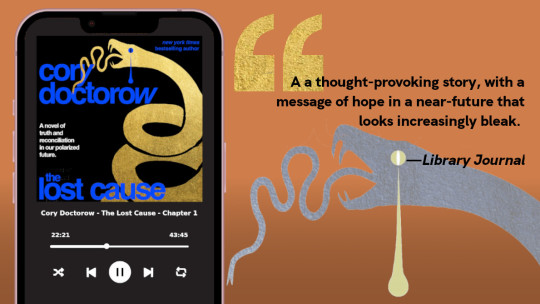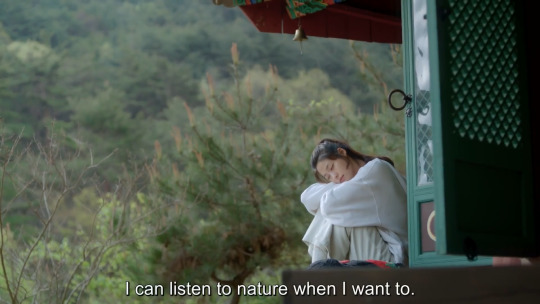Photo









“I only want to live in peace and plant potatoes and dream”
(sources: x / x / x . x / x / x . x / x / x)
683 notes
·
View notes
Text
i love being up early but i love being up late. and i love getting lots of sleep. what now.
108K notes
·
View notes
Text
A father warns his daughter about men's intentions, their shallowness and crudeness; a father thereby warns his daughter about himself, his past self, too. I am a man, I know what it is to be a man; I was like them, and now I must warn you about them. I am warning you about myself; be careful.
Katherine Angel, Daddy Issues
5K notes
·
View notes
Text

It was like falling in love with a ghost, they both knew that they were on borrowed time so all they had left was to savor each other before they had to part ways and who knew for how long.
Slightly inspired by @senlinyu Manacled and my own delusions lol
352 notes
·
View notes
Text
“We’re born alone and we die alone” you were born alone? Your mom wasn’t there?
89K notes
·
View notes
Text
you’re sitting across from me in a shitty diner in anywhere, america, and i watch you pour too much creamer in your coffee and i think “i love you.” you look up, catching me staring, and for a moment i think i’m brave enough to say it, but i take too long and the moment passes. i take the balled up straw wraper and flick it at you, pretending that was my plan all along. you laugh. i never want to go another day without hearing that laugh. i think i will have all the time in the world to say it.
261K notes
·
View notes
Text








THANK YOU, MAPPA!
呪術廻戦 S2 Ep. 12: Blunt Knife

14K notes
·
View notes
Text
man, i love the idea of geto and gojo being each other’s “you’re different” person. gojo was untouchable and unreachable to everyone but geto. he spent fifteen years never really caring about anything until he met geto, then he spent the next fourteen years yearning, chasing for the connection he once had. geto was unreadable to everyone but gojo. before leaving, the only person he would readily give his thoughts to would be gojo and even after a decade of running and lying, gojo still saw through him and he told him he still trusted him. they didn’t end up happy, but they changed. no time is wasted when it’s spent in love.
549 notes
·
View notes
Text
i feel like counter-trolling is an essential skill that kids online aren’t learning and it’s kinda worrying
like back in my day, the day of online forums, learning how to trick someone in to getting themselves banned was an essential skill. if you could tell someone was a chud, you would ask them short, leading questions and watch them get frustrated and post longer and longer rants until they said something that would catch a mod’s attention and get them banned and/or at least publicly humiliated.
and guess what? that’s the exact same tactics the alt-right use now. these people are exclusively acting in bad faith. every interaction these people post online is done with the intention of getting someone to respond to them so they can screenshot the massive paragraphs of text and laugh
so, what’s the solution?
dare ‘em to post dick pics.
don’t acknowledge the content of the stuff they post. if you see someone trying to engage you in bad faith just dare them to post pictures of their penis until they either get frustrated and leave or get frustrated and do it. either way they lose.
this is the tactic used by the fans of a podcast (that i haven’t listened to) called the Chapo Trap House, and 4chan’s /pol/ users fucking HATE them. they hate Chapo Trap House and think they’re crazy because Chapo Trap House fans refuse to engage in meaningful debate and repeatedly demand dick pics. they get frustrated and leave. it works.
132K notes
·
View notes
Text

An engineer wiring an early IBM computer.1958
12K notes
·
View notes
Text
Pluralistic: Leaving Twitter had no effect of NPR's traffic

I'm coming to Minneapolis! This Sunday (Oct 15): Presenting The Internet Con at Moon Palace Books. Monday (Oct 16): Keynoting the 26th ACM Conference On Computer-Supported Cooperative Work and Social Computing.

Enshittification is the process by which a platform lures in and then captures end users (stage one), who serve as bait for business customers, who are also captured (stage two), whereupon the platform rug-pulls both groups and allocates all the value they generate and exchange to itself (stage three):
https://pluralistic.net/2023/01/21/potemkin-ai/#hey-guys
Enshittification isn't merely a form of rent-seeking – it is a uniquely digital phenomenon, because it relies on the inherent flexibility of digital systems. There are lots of intermediaries that want to extract surpluses from customers and suppliers – everyone from grocers to oil companies – but these can't be reconfigured in an eyeblink the that that purely digital services can.
A sleazy boss can hide their wage-theft with a bunch of confusing deductions to your paycheck. But when your boss is an app, it can engage in algorithmic wage discrimination, where your pay declines minutely every time you accept a job, but if you start to decline jobs, the app can raise the offer:
https://pluralistic.net/2023/04/12/algorithmic-wage-discrimination/#fishers-of-men
I call this process "twiddling": tech platforms are equipped with a million knobs on their back-ends, and platform operators can endlessly twiddle those knobs, altering the business logic from moment to moment, turning the system into an endlessly shifting quagmire where neither users nor business customers can ever be sure whether they're getting a fair deal:
https://pluralistic.net/2023/02/19/twiddler/
Social media platforms are compulsive twiddlers. They use endless variation to lure in – and then lock in – publishers, with the goal of converting these standalone businesses into commodity suppliers who are dependent on the platform, who can then be charged rent to reach the users who asked to hear from them.
Facebook designed this playbook. First, it lured in end-users by promising them a good deal: "Unlike Myspace, which spies on you from asshole to appetite, Facebook is a privacy-respecting site that will never, ever spy on you. Simply sign up, tell us everyone who matters to you, and we'll populate a feed with everything they post for public consumption":
https://lawcat.berkeley.edu/record/1128876
The users came, and locked themselves in: when people gather in social spaces, they inadvertently take one another hostage. You joined Facebook because you liked the people who were there, then others joined because they liked you. Facebook can now make life worse for all of you without losing your business. You might hate Facebook, but you like each other, and the collective action problem of deciding when and whether to go, and where you should go next, is so difficult to overcome, that you all stay in a place that's getting progressively worse.
Once its users were locked in, Facebook turned to advertisers and said, "Remember when we told these rubes we'd never spy on them? It was a lie. We spy on them with every hour that God sends, and we'll sell you access to that data in the form of dirt-cheap targeted ads."
Then Facebook went to the publishers and said, "Remember when we told these suckers that we'd only show them the things they asked to see? Total lie. Post short excerpts from your content and links back to your websites and we'll nonconsensually cram them into the eyeballs of people who never asked to see them. It's a free, high-value traffic funnel for your own site, bringing monetizable users right to your door."
Now, Facebook had to find a way to lock in those publishers. To do this, it had to twiddle. By tiny increments, Facebook deprioritized publishers' content, forcing them to make their excerpts grew progressively longer. As with gig workers, the digital flexibility of Facebook gave it lots of leeway here. Some publishers sensed the excerpts they were being asked to post were a substitute for visiting their sites – and not an enticement – and drew down their posting to Facebook.
When that happened, Facebook could twiddle in the publisher's favor, giving them broader distribution for shorter excerpts, then, once the publisher returned to the platform, Facebook drew down their traffic unless they started posting longer pieces. Twiddling lets platforms play users and business-customers like a fish on a line, giving them slack when they fight, then reeling them in when they tire.
Once Facebook converted a publisher to a commodity supplier to the platform, it reeled the publishers in. First, it deprioritized publishers' posts when they had links back to the publisher's site (under the pretext of policing "clickbait" and "malicious links"). Then, it stopped showing publishers' content to their own subscribers, extorting them to pay to "boost" their posts in order to reach people who had explicitly asked to hear from them.
For users, this meant that their feeds were increasingly populated with payola-boosted content from advertisers and pay-to-play publishers who paid Facebook's Danegeld to reach them. A user will only spend so much time on Facebook, and every post that Facebook feeds that user from someone they want to hear from is a missed opportunity to show them a post from someone who'll pay to reach them.
Here, too, twiddling lets Facebook fine-tune its approach. If a user starts to wean themself off Facebook, the algorithm (TM) can put more content the user has asked to see in the feed. When the user's participation returns to higher levels, Facebook can draw down the share of desirable content again, replacing it with monetizable content. This is done minutely, behind the scenes, automatically, and quickly. In any shell game, the quickness of the hand deceives the eye.
This is the final stage of enshittification: withdrawing surpluses from end-users and business customers, leaving behind the minimum homeopathic quantum of value for each needed to keep them locked to the platform, generating value that can be extracted and diverted to platform shareholders.
But this is a brittle equilibrium to maintain. The difference between "God, I hate this place but I just can't leave it" and "Holy shit, this sucks, I'm outta here" is razor-thin. All it takes is one privacy scandal, one livestreamed mass-shooting, one whistleblower dump, and people bolt for the exits. This kicks off a death-spiral: as users and business customers leave, the platform's shareholders demand that they squeeze the remaining population harder to make up for the loss.
One reason this gambit worked so well is that it was a long con. Platform operators and their investors have been willing to throw away billions convincing end-users and business customers to lock themselves in until it was time for the pig-butchering to begin. They financed expensive forays into additional features and complementary products meant to increase user lock-in, raising the switching costs for users who were tempted to leave.
For example, Facebook's product manager for its "photos" product wrote to Mark Zuckerberg to lay out a strategy of enticing users into uploading valuable family photos to the platform in order to "make switching costs very high for users," who would have to throw away their precious memories as the price for leaving Facebook:
https://www.eff.org/deeplinks/2021/08/facebooks-secret-war-switching-costs
The platforms' patience paid off. Their slow ratchets operated so subtly that we barely noticed the squeeze, and when we did, they relaxed the pressure until we were lulled back into complacency. Long cons require a lot of prefrontal cortex, the executive function to exercise patience and restraint.
Which brings me to Elon Musk, a man who seems to have been born without a prefrontal cortex, who has repeatedly and publicly demonstrated that he lacks any restraint, patience or planning. Elon Musk's prefrontal cortical deficit resulted in his being forced to buy Twitter, and his every action since has betrayed an even graver inability to stop tripping over his own dick.
Where Zuckerberg played enshittification as a long game, Musk is bent on speedrunning it. He doesn't slice his users up with a subtle scalpel, he hacks away at them with a hatchet.
Musk inaugurated his reign by nonconsensually flipping every user to an algorithmic feed which was crammed with ads and posts from "verified" users whose blue ticks verified solely that they had $8 ($11 for iOS users). Where Facebook deployed substantial effort to enticing users who tired of eyeball-cramming feed decay by temporarily improving their feeds, Musk's Twitter actually overrode users' choice to switch back to a chronological feed by repeatedly flipping them back to more monetizable, algorithmic feeds.
Then came the squeeze on publishers. Musk's Twitter rolled out a bewildering array of "verification" ticks, each priced higher than the last, and publishers who refused to pay found their subscribers taken hostage, with Twitter downranking or shadowbanning their content unless they paid.
(Musk also squeezed advertisers, keeping the same high prices but reducing the quality of the offer by killing programs that kept advertisers' content from being published along Holocaust denial and open calls for genocide.)
Today, Musk continues to squeeze advertisers, publishers and users, and his hamfisted enticements to make up for these depredations are spectacularly bad, and even illegal, like offering advertisers a new kind of ad that isn't associated with any Twitter account, can't be blocked, and is not labeled as an ad:
https://www.wired.com/story/xs-sneaky-new-ads-might-be-illegal/
Of course, Musk has a compulsive bullshitter's contempt for the press, so he has far fewer enticements for them to stay. Quite the reverse: first, Musk removed headlines from link previews, rendering posts by publishers that went to their own sites into stock-art enigmas that generated no traffic:
https://www.theguardian.com/technology/2023/oct/05/x-twitter-strips-headlines-new-links-why-elon-musk
Then he jumped straight to the end-stage of enshittification by announcing that he would shadowban any newsmedia posts with links to sites other than Twitter, "because there is less time spent if people click away." Publishers were advised to "post content in long form on this platform":
https://mamot.fr/@pluralistic/111183068362793821
Where a canny enshittifier would have gestured at a gaslighting explanation ("we're shadowbanning posts with links because they might be malicious"), Musk busts out the motto of the Darth Vader MBA: "I am altering the deal, pray I don't alter it any further."
All this has the effect of highlighting just how little residual value there is on the platform for publishers, and tempts them to bolt for the exits. Six months ago, NPR lost all patience with Musk's shenanigans, and quit the service. Half a year later, they've revealed how low the switching cost for a major news outlet that leaves Twitter really are: NPR's traffic, post-Twitter, has declined by less than a single percentage point:
https://niemanreports.org/articles/npr-twitter-musk/
NPR's Twitter accounts had 8.7 million followers, but even six months ago, Musk's enshittification speedrun had drawn down NPR's ability to reach those users to a negligible level. The 8.7 million number was an illusion, a shell game Musk played on publishers like NPR in a bid to get them to buy a five-figure iridium checkmark or even a six-figure titanium one.
On Twitter, the true number of followers you have is effectively zero – not because Twitter users haven't explicitly instructed the service to show them your posts, but because every post in their feeds that they want to see is a post that no one can be charged to show them.
I've experienced this myself. Three and a half years ago, I left Boing Boing and started pluralistic.net, my cross-platform, open access, surveillance-free, daily newsletter and blog:
https://pluralistic.net/2023/02/19/drei-drei-drei/#now-we-are-three
Boing Boing had the good fortune to have attracted a sizable audience before the advent of siloed platforms, and a large portion of that audience came to the site directly, rather than following us on social media. I knew that, starting a new platform from scratch, I wouldn't have that luxury. My audience would come from social media, and it would be up to me to convert readers into people who followed me on platforms I controlled – where neither they nor I could be held to ransom.
I embraced a strategy called POSSE: Post Own Site, Syndicate Everywhere. With POSSE, the permalink and native habitat for your material is a site you control (in my case, a WordPress blog with all the telemetry, logging and surveillance disabled). Then you repost that content to other platforms – mostly social media – with links back to your own site:
https://indieweb.org/POSSE
There are a lot of automated tools to help you with this, but the platforms have gone to great lengths to break or neuter them. Musk's attack on Twitter's legendarily flexible and powerful API killed every automation tool that might help with this. I was lucky enough to have a reader – Loren Kohnfelder – who coded me some python scripts that automate much of the process, but POSSE remains a very labor-intensive and error-prone methodology:
https://pluralistic.net/2021/01/13/two-decades/#hfbd
And of all the feeds I produce – email, RSS, Discourse, Medium, Tumblr, Mastodon – none is as labor-intensive as Twitter's. It is an unforgiving medium to begin with, and Musk's drawdown of engineering support has made it wildly unreliable. Many's the time I've set up 20+ posts in a thread, only to have the browser tab reload itself and wipe out all my work.
But I stuck with Twitter, because I have a half-million followers, and to the extent that I reach them there, I can hope that they will follow the permalinks to Pluralistic proper and switch over to RSS, or email, or a daily visit to the blog.
But with each day, the case for using Twitter grows weaker. I get ten times as many replies and reposts on Mastodon, though my Mastodon follower count is a tenth the size of my (increasingly hypothetical) Twitter audience.
All this raises the question of what can or should be done about Twitter. One possible regulatory response would be to impose an "End-To-End" rule on the service, requiring that Twitter deliver posts from willing senders to willing receivers without interfering in them. End-To-end is the bedrock of the internet (one of its incarnations is Net Neutrality) and it's a proven counterenshittificatory force:
https://www.eff.org/deeplinks/2023/06/save-news-we-need-end-end-web
Despite what you may have heard, "freedom of reach" is freedom of speech: when a platform interposes itself between willing speakers and their willing audiences, it arrogates to itself the power to control what we're allowed to say and who is allowed to hear us:
https://pluralistic.net/2022/12/10/e2e/#the-censors-pen
We have a wide variety of tools to make a rule like this stick. For one thing, Musk's Twitter has violated innumerable laws and consent decrees in the US, Canada and the EU, which creates a space for regulators to impose "conduct remedies" on the company.
But there's also existing regulatory authorities, like the FTC's Section Five powers, which enable the agency to act against companies that engage in "unfair and deceptive" acts. When Twitter asks you who you want to hear from, then refuses to deliver their posts to you unless they pay a bribe, that's both "unfair and deceptive":
https://pluralistic.net/2023/01/10/the-courage-to-govern/#whos-in-charge
But that's only a stopgap. The problem with Twitter isn't that this important service is run by the wrong mercurial, mediocre billionaire: it's that hundreds of millions of people are at the mercy of any foolish corporate leader. While there's a short-term case for improving the platforms, our long-term strategy should be evacuating them:
https://pluralistic.net/2023/07/18/urban-wildlife-interface/#combustible-walled-gardens
To make that a reality, we could also impose a "Right To Exit" on the platforms. This would be an interoperability rule that would require Twitter to adopt Mastodon's approach to server-hopping: click a link to export the list of everyone who follows you on one server, click another link to upload that file to another server, and all your followers and followees are relocated to your new digs:
https://pluralistic.net/2022/12/23/semipermeable-membranes/#free-as-in-puppies
A Twitter with the Right To Exit would exert a powerful discipline even on the stunted self-regulatory centers of Elon Musk's brain. If he banned a reporter for publishing truthful coverage that cast him in a bad light, that reporter would have the legal right to move to another platform, and continue to reach the people who follow them on Twitter. Publishers aghast at having the headlines removed from their Twitter posts could go somewhere less slipshod and still reach the people who want to hear from them on Twitter.
And both Right To Exit and End-To-End satisfy the two prime tests for sound internet regulation: first, they are easy to administer. If you want to know whether Musk is permitting harassment on his platform, you have to agree on a definition of harassment, determine whether a given act meets that definition, and then investigate whether Twitter took reasonable steps to prevent it.
By contrast, administering End-To-End merely requires that you post something and see if your followers receive it. Administering Right To Exit is as simple as saying, "OK, Twitter, I know you say you gave Cory his follower and followee file, but he says he never got it. Just send him another copy, and this time, CC the regulator so we can verify that it arrived."
Beyond administration, there's the cost of compliance. Requiring Twitter to police its users' conduct also requires it to hire an army of moderators – something that Elon Musk might be able to afford, but community-supported, small federated servers couldn't. A tech regulation can easily become a barrier to entry, blocking better competitors who might replace the company whose conduct spurred the regulation in the first place.
End-to-End does not present this kind of barrier. The default state for a social media platform is to deliver posts from accounts to their followers. Interfering with End-To-End costs more than delivering the messages users want to have. Likewise, a Right To Exit is a solved problem, built into the open Mastodon protocol, itself built atop the open ActivityPub standard.
It's not just Twitter. Every platform is consuming itself in an orgy of enshittification. This is the Great Enshittening, a moment of universal, end-stage platform decay. As the platforms burn, calls to address the fires grow louder and harder for policymakers to resist. But not all solutions to platform decay are created equal. Some solutions will perversely enshrine the dominance of platforms, help make them both too big to fail and too big to jail.
Musk has flagrantly violated so many rules, laws and consent decrees that he has accidentally turned Twitter into the perfect starting point for a program of platform reform and platform evacuation.

If you'd like an essay-formatted version of this post to read or share, here's a link to it on pluralistic.net, my surveillance-free, ad-free, tracker-free blog:
https://pluralistic.net/2023/10/14/freedom-of-reach/#ex


My next novel is The Lost Cause, a hopeful novel of the climate emergency. Amazon won't sell the audiobook, so I made my own and I'm pre-selling it on Kickstarter!

Image: JD Lasica (modified) https://commons.wikimedia.org/wiki/File:Elon_Musk_%283018710552%29.jpg
CC BY 2.0 https://creativecommons.org/licenses/by/2.0/deed.en
801 notes
·
View notes
Text
reject booktok return to closing your eyes in a library aisle and moving your finger back and forth until you open your eyes and land on a book that will either make you want to return it after five pages or consume your soul for the next three months
274 notes
·
View notes
Text
Always Remember:
kissing can and will, get boring.
its ok to go to sleep on opposite sides.
forgetting favorites, dates and replies is only human.
you dont have to like, or be friends with all of their friends and vice-versa.
they have a right to spend weekends dedicating to their friends and family. you have the same right.
privacy is still in play.
trying simple things that they like, no matter how much you are sure you will dislike it, is a very small step you can take to show your love to them.
you dont gotta have the same taste in music, food, books etc.
saying i love you, thank you, take care, please and i missed you really helps.
you cant agree with all their life decisions and they cant with yours. keeping an open mind and having an honest and deep discussion about it helps.
they dont need your permission to do things and neither you need theirs.
the intention and care behind the gift matters. not its price tag.
dont try and change them. help them become better versions of themselves and get the same help and support and care from them.
know what matters most and focus on that.
198K notes
·
View notes
Text
i highly recommend developing an intense interest in some natural phenomenon or creature such as bugs or stars or mushrooms. you will be delighted every time you go outside
47K notes
·
View notes








